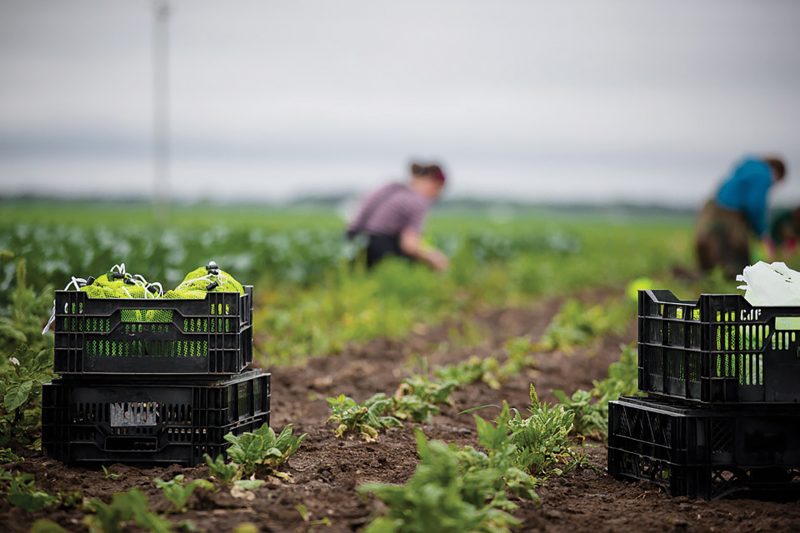Diversified, small, and mid-sized farmers deserve to have a strong safety net. Yet, most don’t. Why? Crop insurance isn’t accessible or worthwhile for most small, mid-sized, and diversified farms.
Take it from Andy Petran, a Land Stewardship Project member and Farmington, Minn.-area farmer, who wrote the following in a recent Star Tribune op-ed: “Farming has always been difficult, but climate-induced extreme weather events have increased the level of risk. To help overcome bad years and bad luck, the federal farm bill offers farmers subsidized crop insurance. Yet the program as it currently functions favors large operations producing a few select crops, making it impractical or impossible for many small farmers to participate. A recent survey of farmers under 40 found that only 5% had crop insurance. That’s a crisis for agriculture.”
A single extreme weather event or season of drought can put an uninsured farmer in serious financial distress or out of business, especially if they’re a beginning farmer without years of operating experience to build their own financial resiliency. As the impacts of climate change continue to accelerate, our farmers, who are on the front lines of climate change, are at extreme risk — this is especially true for farmers growing food crops. This means the security and future of our farm and food system is at risk.
That’s why Land Stewardship Project members are organizing to include the Whole Farm Revenue Protection Improvement Act (WFRPIA) in the next Federal Farm Bill. If passed as part of the next Federal Farm Bill, this legislation will realize the potential of the existing Whole Farm Revenue Protection Program to provide financial resiliency and stability for producers historically left out of federal crop insurance programs. The bill addresses common barriers to this promising but complex insurance program by streamlining paperwork, expanding the Micro Farm pilot policy, raising the annual growth limit, strengthening the diversification discount, appropriately compensating crop insurance agents who sell WFRP policies, and more.
View LSP’s fact sheet on the Whole Farm Revenue Protection Improvement Act here.
Senator Tina Smith has been an active co-sponsor of this legislation, but Senator Amy Klobuchar has not yet expressed her support. To get this bill across the finish line, we need to demonstrate to Senators Smith and Klobuchar that this must be a top priority for them.
If you are a Minnesota farmer, please take just one minute to add your name to our Farmer-Sign-On Letter by November 10 to urge our U.S. Senators to make the WFRPIA a top priority for the next Farm Bill!
Add Your Name Here
LSP staff and farmer-members who are traveling to Washington, D.C., in mid-November will hand deliver this letter to our Senators’ offices to make sure they see the farmer constituents they have who are counting on them to get the Whole Farm Revenue Protection Improvement Act passed into law. Please add your name today!
